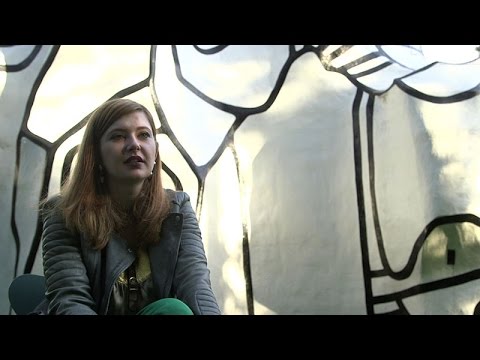
“I’m not sure whether society has really learnt anything from the Holocaust.” She began her life in Germany as an immigrant and became painfully aware of the prejudice that still exists. Meet young Azerbaijan-born novelist, Olga Grjasnowa.
“We were always taught that we could do better. And if we failed, then it was our own fault.” Grjasnowa’s parents were conformists, and she grew up reading only books that were permitted in the Soviet Union, nurturing a deep fascination with the Soviet hero stories.
When the family was forced to move, due to the bloody riots between Armenia and Azerbaijan, she was introduced to a new eye-opening literary world: “One can understand certain coherences better by reading books.” The move, however, also resulted in a sense of displacement still predominant in her writings: “I believe I only have the roots, not the beliefs. I see it as a cultural performance.”
Olga Grjasnowa (b. 1984) grew up in Azerbaijan in the Caucasus and has spent extended periods in Poland, Russia and Israel. She moved to Germany at the age of twelve and has studied at The Institute for Literature in Leipzig. Her first novel, ‘All Russians Love Birch Trees’ (2012), is set in Frankfurt, Germany and follows a young Jewish immigrant named Masha. The novel, which reflects many elements from Grjasnowa’s own background, became a major award-winning success. Of her literary career, Grjasnowa comments: “I think that I’m more interested in reading than writing. I think that writing is just a by-product.”
Olga Grjasnowa was interviewed by Marc-Christoph Wagner at the Louisiana Literature festival at Louisiana Museum of Modern Art, Denmark in August 2013.
Camera: Klaus Elmer
Edited by: Kamilla Bruus
Produced by: Marc-Christoph Wagner
Copyright: Louisiana Channel, Louisiana Museum of Modern Art, 2015
Supported by Nordea-fonden
source